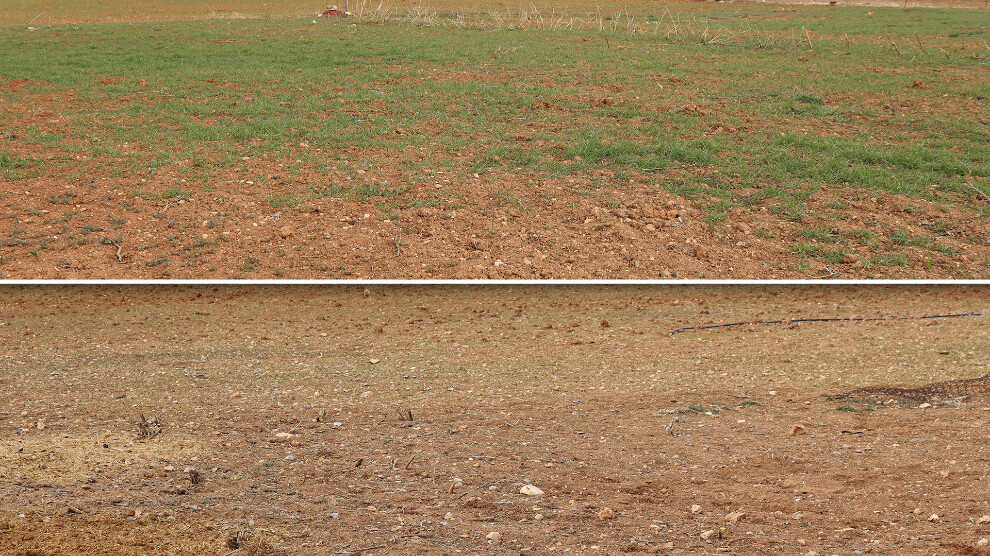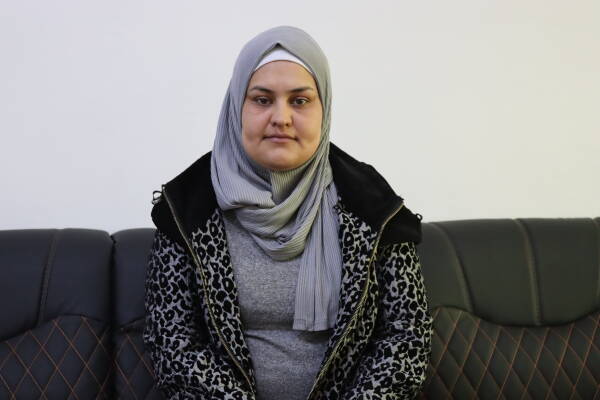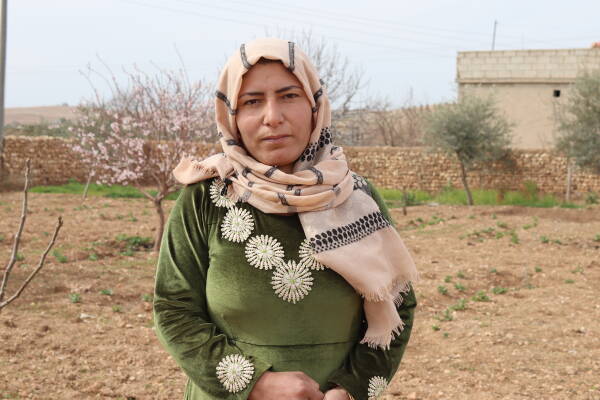‘Attacks on North and East Syria pose threat to food security’
The ongoing Turkish attacks and climate change affect agriculture in North and East Syria, decreasing crop yields. “The current situation poses threats to food security,” said Sawsan Daban, Co-chair of the Economy and Agriculture Institution in Kobanê.

NURŞAN EBDÎ
Kobanê- The people of North and East Syria have faced many challenges in irrigating their agricultural land due to recent decline in rainfall in North and East Syria and the ongoing Turkish attacks, causing power and water outages.
“A majority of the people in the Euphrates Region, about 99 percent of population, depend on agriculture for their livelihoods,” said Sawsan Daban, Co-chair of the Economy and Agriculture Institution in Kobanê. “On September 15, 2024, our institution started issuing licenses for agricultural lands and distributing agricultural materials, fertilizers and diesel fuel to farmers. However, the farmers have faced various challenges in recent years. The most important challenges faced by the farmers are the ongoing Turkish attacks on the region. Last year, Turkish attacks targeted and attacked water and energy stations, negatively affecting agriculture. The deactivation of these stations has caused a decrease in the distribution of diesel to farmers.”
‘There has been a noticeable decline in crop yields’
The institution distributed diesel fuel to the farmers five or six times in previous years, “However, we can only distribute diesel twice now. The farmers gave particular importance to the cultivation of wheat and barley; however, we, as the institution, could not distribute significant diesel to farmers due to the Turkish attacks. The Turkish attacks have also targeted farmers. Due to lack of security, there is a decrease in crop yields. The ongoing Turkish attacks and climate change affect agriculture in North and East Syria, decreasing crop yields. The current situation poses threats to food security in the region.”

Sawsan Daban pointed to the policies carried out by the Turkish state in the region and said, “The Turkish state has cut off the water of the Euphrates River for years, negatively affecting the agricultural lands on the river bank. The water cut also has caused a decrease in the water level in wells used by farmers to irrigate their agricultural land. As the institution, we keep distributing agricultural materials and diesel to the farmers.”

“There was a decline in rainfall in autumn, decreasing the wheat and barley production,” said Suzda Adel, a farmer in the Aydak village of Kobanê. “If the rainfall is at the desired level in March, we hope that we will have higher production of cumin, lentil and other crops.”
